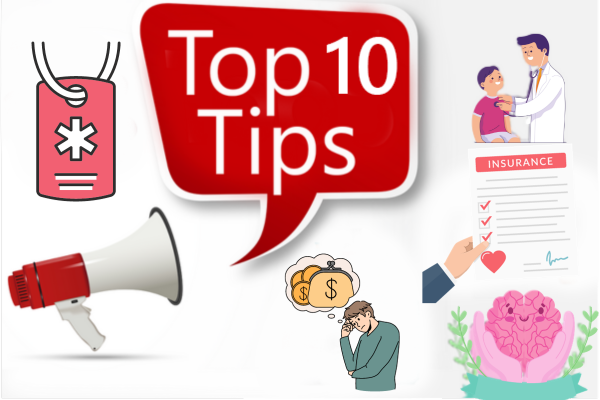
HoG Social Workers Top 10 Tips For Improving Quality Of Life With A Bleeding Disorder!
Many people living with a bleeding disorder are looking for ways to improve their life and to live as fully and productively as possible. Patients and clients of HoG are fortunate to have the comprehensive, compassionate, and patient-centered services provided by our outreach social workers. Social workers play a critical role in advocating for and helping our clients because we know that it takes so much more than medicine! Hemophilia of Georgia provides outreach social work services to every patient or client, no matter their diagnosis. HoG social workers assess the individual’s needs and provide services and programs to help. Their goal is to help people with bleeding disorders live as normally and productively as possible. Our social workers:
- Provide education about health insurance, including how to obtain insurance and programs that can assist with premium payments
- Provide education about HoG financial support programs, including preventive dental, educational success, and professional development
- Provide referrals to community resources for financial or social support
- Provide education, information, and suggest skills to use for those experiencing needle aversion
- Assist young adults with the transition from pediatric to adult healthcare
- Identify and remove barriers to ensure people use their medication as prescribed
With that in mind, HoG’s Director of Social Work, Emily Brown, and her team of Outreach Social Workers put together a top 10 list of tips for people living with a bleeding disorder:
- Prioritize your mental health and seek support when needed.
- Maintain health insurance and understand your out-of-pocket expenses. Ask your social worker if you have general questions about insurance or insurance eligibility.
- If you have a change or lose your insurance coverage, let your social worker know. They can help you review your options for coverage.
- Schedule your annual HTC visit and bring a list of questions for your provider.
- Wear your Medic Alert® whenever possible. Hemophilia of Georgia offers clients one Medic Alert® item. We do not replace them, but if you have not received one for you or your child, please contact us at 770-518-8272. You can also purchase new Medic Alert® from medicalert.com. If you can't afford a new one, please reach out to your HoG Social Worker.
- Keep your EAP (Emergency Action Plan) card that lists your emergency contacts in your wallet in case of an emergency.
- If you change your address or phone number update both HoG and your Hemophilia Treatment Center.
- If you are experiencing financial hardship, reach out to your social worker to learn more about available resources.
- Attend HoG Client Events at HoG to connect with others living with bleeding disorders.
- Utilize HoG’s Hemophilia, von Willebrand Disease and Platelet Disorders Handbook to educate others about your bleeding disorder.
HoG Outreach Social Workers are here to help you and hope you find these tips helpful. We are dedicated to partnering with you to improve your quality of life and well-being. If you have any questions, please contact your social worker directly. If you do not know who your assigned social worker is, please call 770-518-8272.
